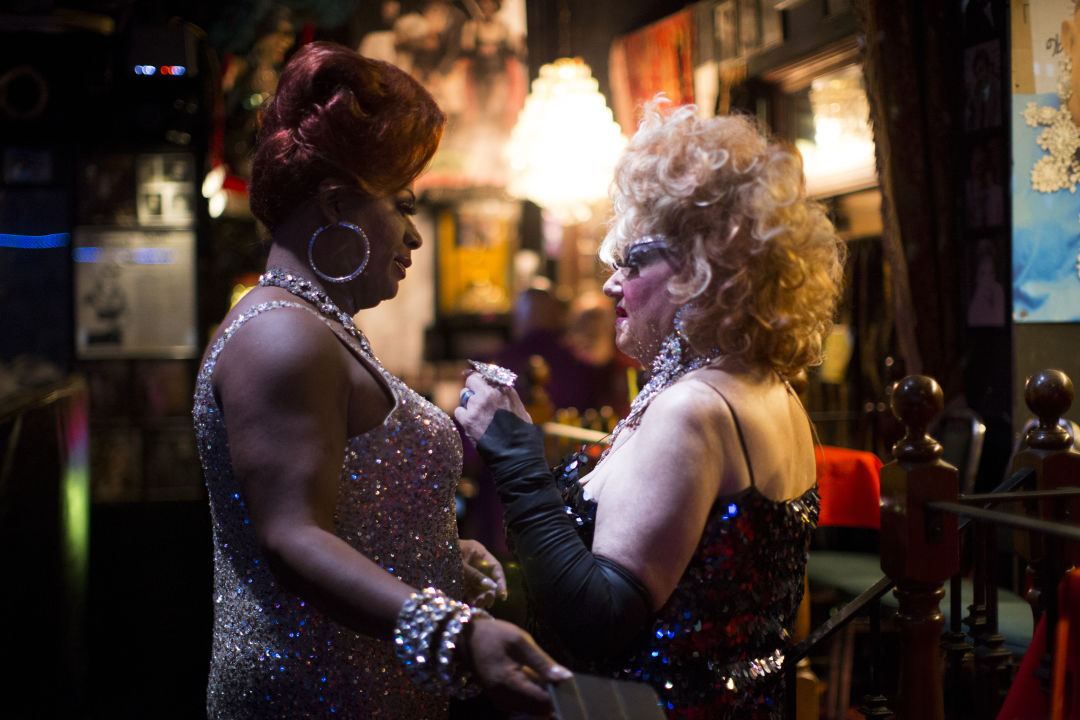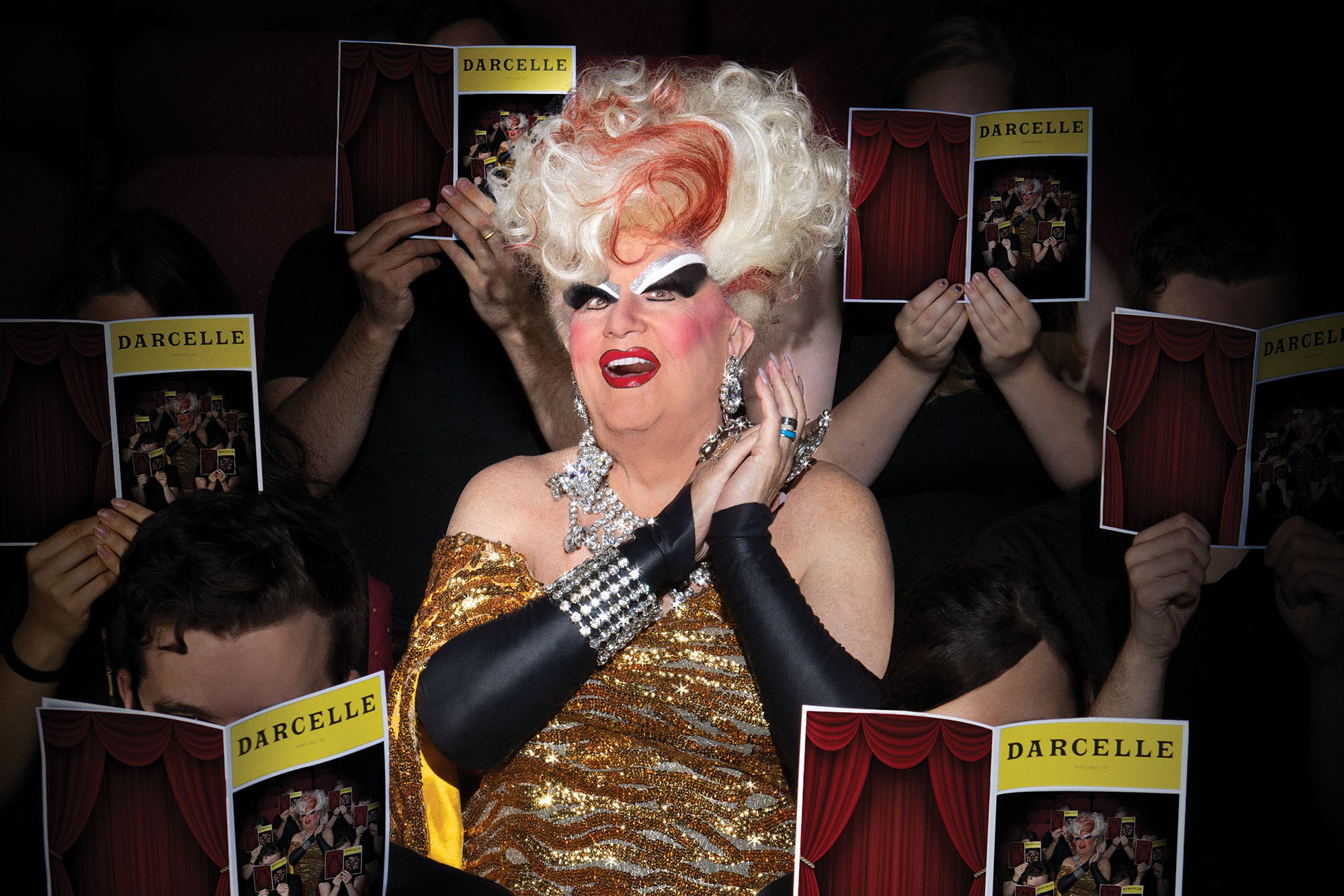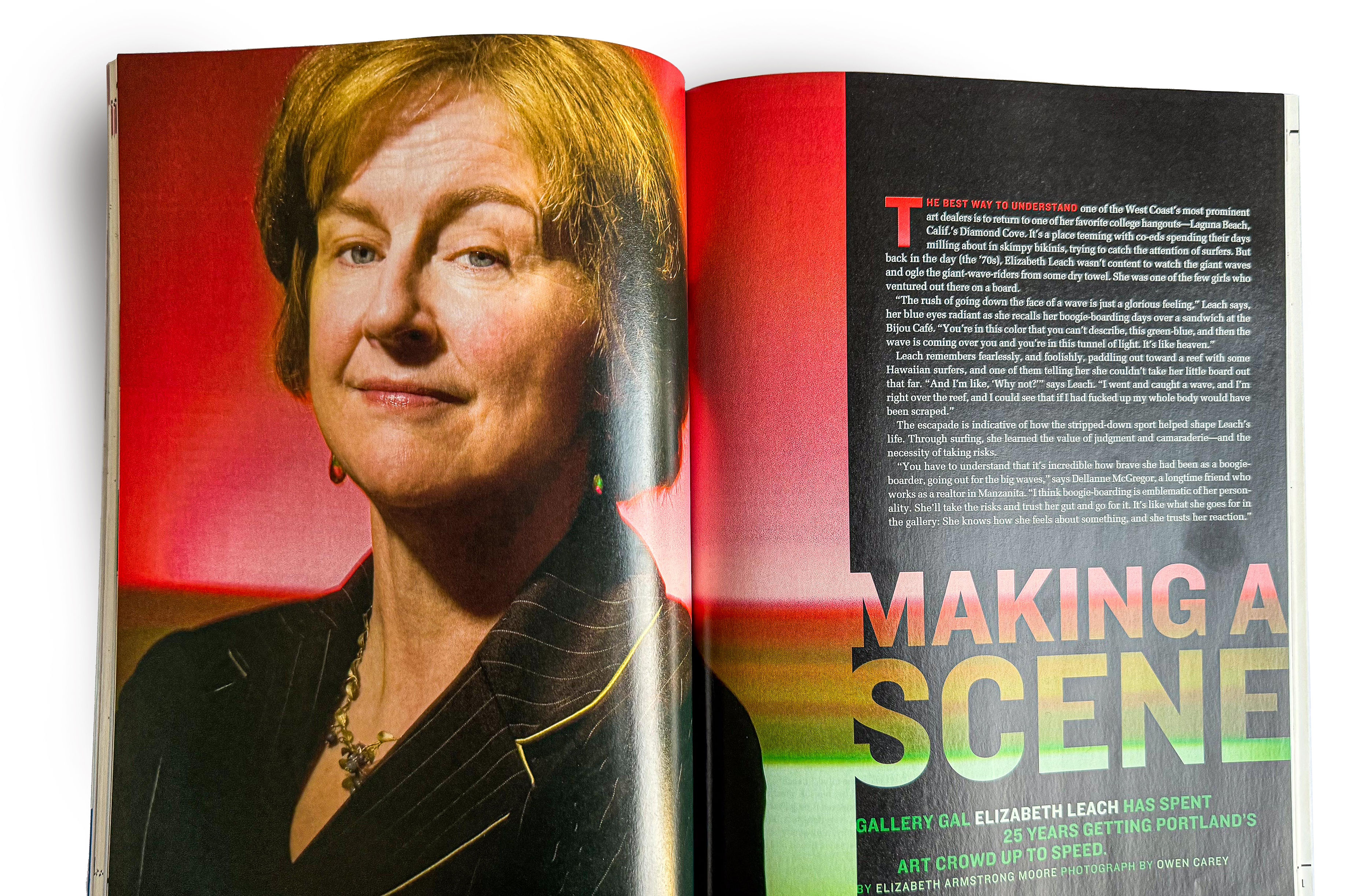What Does the Future Look Like for Darcelle’s?

Poison Waters and Darcelle
Image: The Oregonian
To Anthony Hudson, who performs as drag clown Carla Rossi, Darcelle’s is Portland. “I don’t think the city would have a single cultural identity without Darcelle’s,” Hudson says. “In terms of drag, Darcelle’s is a beacon. If it’s not a standard we all hold ourselves to, it’s something we’re constantly aware of: we’ve all been to Darcelle’s, we all know the show.”
For 53 years, Darcelle’s has been a given. Through Watergate, Walter Cronkite, and Winona Ryder’s shoplifting scandal, the somewhat out-of-time Old Town drag club—home to its namesake, the world’s oldest working drag queen—put on six shows a week. Then, like everything else, it went offline in 2020.
“It was a shock to all of us to be at home on a Friday and Saturday night. It was so weird at the very beginning to be like, ‘We’re supposed to be onstage, we’re supposed to be in makeup and costume, but we’re at home playing cards,’” says Poison Waters, who has performed at Darcelle’s for more than 30 years.
Waters says the company, which consists of eight queens, always knew the club would reopen (which it has), but the mandatory pause gave them a moment to reconsider old tricks. For one, they pulled back their six-shows-a-week schedule to four—two Friday and two Saturday—and reformatted those shows to feature more performers in more numbers. For another, they launched the club’s first-ever drag brunch, and revived their “Catch a Rising Star” showcase, which spotlights local talent outside the permanent cast each Tuesday.
Audiences, who have started to return full-strength, are markedly enthusiastic. “I think both audience and performer have gotten this renewed zest for what we’re doing. They’re the most energetic we’ve seen in decades,” Waters says. “It’s kind of like that old saying, you don’t know what you’ve got till it’s gone.”
New production numbers are in the pipeline, as are fresh revamps of a few classics. A recent cleanout of the club’s cavernous dressing room, home to decades of Darcelle’s handmade costumes, has exhumed some masterpieces that might soon grace the stage.
There’s not much talk of reinventing the wheel, though. Last fall, Darcelle’s received a plaque commemorating its spot on the National Register of Historic Places, which nodded to its “significance as part of the LGBTQ history in the United States.” For all the recent shifts, the club remains rooted in and beloved for tradition. “It’s a time capsule, but it also shows the ongoing resilience of queerness and queer performance,” says Hudson.
Darcelle, who turned 91 in November, still performs in all four full-company shows each week. She doesn’t perform at drag brunch or Catch a Rising Star, but she’s in the audience for them every Tuesday and Sunday. Waters says early COVID was rough for the grande dame, who spent a lot of time at home alone—“He keeps going because of his audiences and the work he does on stage, so that was a little bit of a scary moment”—but now, the queen shows no signs of slowing.
When the subject of a post-Darcelle Darcelle’s comes up, Waters (who’s billed as the club’s cohostess) remains firm. “[Darcelle] has said it countless times: he will never retire,” Waters says. “He will perform until he doesn’t have a breath to perform.” No one knows when that day might come, but there’s something comforting about the idea that in this moment of constant change, the
future might look a little like things always have.
“I hope Darcelle’s outlives Ted Wheeler,” says Hudson, for their part. “I hope Darcelle’s turns into a spaceship and takes over the universe. I hope it has a very, very, very long life—just as long as Darcelle, times a hundred.”







